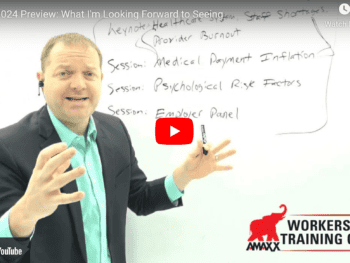Officials in the land Down Under are making sure to get the point of safety across for those working out in the fields.
As the busy harvest season draws closer, farmers and grain growers are being urged to make safety the most important part of their planning, WorkSafe Victoria Health and Safety General Manager, Lisa Sturzenegger said recently.
“As the warmer months are fast approaching, the hay season is about to get under way and farmers are getting busier and preparing for the season ahead,” Sturzenegger said. “But we know from past experience that it only takes a moment for a rushed decision to turn into a tragic one.”
According to Sturzenegger, three recent tragic farm deaths since June were a sad reminder that farming was a high-risk occupation. Sturzenegger noted the message to all Victorians was a simple one, “Don’t take shortcuts with safety. Since June, three members of Victoria’s farming community left home at the start of their day and never came back. Nobody – workers, family, friends or the wider community – should have to suffer the trauma of a workplace fatality.”
Safety Needs to Be a Priority
As Sturzenegger went on to note, nine of the 18 workplace fatalities this year had occurred in regional Victoria and urged every worker to make safety a priority.
WorkSafe Victoria’s safety tips for surviving the harvest season include:
• Ensure plant is maintained and guards in place, particularly brakes, hydraulics, steering, (poorly inflated tires can contribute to rollover).
• Understand the limitations of the machinery and vehicles you’re using. Don’t overload them and use the right machine for the job.
• If something is blocked or broken, plan the repair job – shut all machinery down, remove all sources of energy before attempting to clear any blockages, and reinstate all guards before resuming work.
• Be aware of where power lines are and height of machinery – plan your route.
• Induct contractors who will work on the property and consult them about farm hazards (access/egress and no go zones).
• Only allow trained and competent operators to use plant.
• Let someone know where you’ll be working and when you’re due back, and have an emergency communications plan.
• Keep a phone or other means of communication on you so help can be called if necessary.
• Keep children away from work sites and machinery in operation – particularly during loading and unloading operations.
• Harvesting often requires long hours including early starts and/or late finishes so be aware of fatigue, take regular rest breaks, drink plenty of water to prevent dehydration and eat nourishing food.
Author Kori Shafer-Stack, Amaxx Risk Solutions, Inc. is an expert in post-injury response procedures and part of the Amaxx team helping companies reduce their workers compensation costs by 20% to 50%. She is a writer, speaker, and website publisher. www.reduceyourworkerscomp.com. Contact: kstack@reduceyourworkerscomp.com.
©2013 Amaxx Risk Solutions, Inc. All rights reserved under International Copyright Law.























